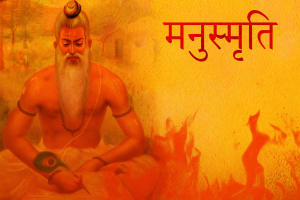Ancient Indian political philosophy is rich, diverse, and profound. Of its numerous salient contributions, the Saptang Theory as envisioned by the ancient lawgiver Manu is a powerful notion that defined early conceptions of statecraft and governance in Bharat (India). Described in the Manusmriti (ancient Hindu lawbook), the Saptang Theory devises seven key building elements or limbs (ang) of a successful state. The word ‘Saptang’ is derived from two Sanskrit terms—Sapta (seven) and Ang (part or limb). Just as a living body consists of interdependent limbs, Manu conceived the state as a body consisting of interdependent parts.
If any limb was defective or weak, the state would be compromised. This organic concept of the state shows that Manu took a holistic approach towards governance, where balance, service, and moral responsibility were highlighted. At Biyani College, one of the leading ba college in jaipur, students of Political Science explore such ancient Indian theories that continue to inspire modern governance and political thought.

The Seven Limbs of the Saptang Theory
- Swami (The King or Ruler): The king, or Swami, is the ruler. Manu stressed the duty (dharma) of the ruler to be wise, just, and kind. He is not merely the head of administration but also the moral guide. The king must be the protector of righteousness (dharma), protector of his people, and upholder of justice. Manu’s concept of kingship was one of divine responsibility. A king was a servant, not a despot. His authority was limited by moral values and the wish of his subjects. This is similar to contemporary concepts of constitutional monarchy and moral rule.
- Amatya (The Ministers and Officials): No single king may rule by himself. The administrative pillar of the state is the Amatya, or council of ministers. Manu emphasized the need to have learned, experienced, and honest ministers. These counselors guide the king in policymaking, enforcement of laws, handling finance, and maintenance of internal peace. The theory emphasizes the importance of division of labor, delegation of powers, and collective decision-making. It manifests a beginning awareness of bureaucracy and public administration.
- Janapada (The Territory and Population): The third branch, Janapada, is that of the geographical area as well as its inhabitants. Manu declares that there cannot be a state without an acquired land and settled inhabitants. The land must be fertile and strategically located, and the inhabitants must be industrious, loyal, and obedient. A flourishing Janapada imparts a healthy economy, cultural development, and national cohesion. Manu gave great value to self-supporting villages, agriculture, and concord among society, which are the strong pillars of an affluent state.
- Durga (Fortified Capital or Defense) : The word Durga literally means a fort. This limb symbolizes defense and protection—inner and outer. A well-walled city, well-trained army, and watchful administration are needed to safeguard the state from invasion, revolt, and anarchy. Manu recommended rulers to spend on good walls, military training, arms industries, and intelligence agencies. Durga is not just material forts, but the strategic power of the state too.
- Kosha (The Treasury): Kosha, or the treasury, is the symbol of the state’s economic power. A full treasury is a guarantee of easy rule, infrastructure building, welfare schemes, and military expenditure. Manu taught equal taxation, economic productivity, and non-wasteful spending. Manu’s definition of financial administration was informed by ethical wealth accumulation. The king was to gather taxes as a bee gathers honey—gently, in a way as not to hurt the flower. This metaphor testifies to an early awareness of budgetary restraint and economic justice.
- Danda (Law and Order): The term Danda signifies punishment or coercive authority. It is the executive and judicial power of the king to administer law and instill discipline. Manu was a strong advocate of the rule of law, whereby justice must be on time, equitable, and impartial. Danda is a defense against evil and obedience to rules. Far from being an instrument of tyranny, it is a bulwark of the weak and enforcer of social order. Manu’s idea of justice married legal rules to moral precepts, just as contemporary judicial systems founded upon ethics and evidence.
- Mitra (The Ally or Friend): The last of the elements, Mitra, emphasizes the need for foreign policy and alliances. No state stands in solitude. A wise king has diplomatic ties, forms good allies, and does not indulge in useless wars. Manu advocated the practice of keeping good relations with contiguous kingdoms through treaties, marriages, and cultural visits. Mitra is the reflection of ancient Indian policy of balance of power and soft diplomacy, very applicable in modern-day international relations.
Applicability Today
Even though the Saptang Theory dates back more than two millennia ago, its applicability is high. The seven limbs can map quite well with modern notions of statehood, government, and public administration:- Swami : Leadership of the government
- Amatya : Civil service bureau
- Janapada : Citizens and populace
- Durga : National defense
- Kosha : Expenses and finances
- Danda : Justice and law
- Mitra : Foreign affairs
Conclusion:
The Saptang Theory of Manu is an ageless political handbook of governance and organization. It is a record of the collective wisdom of ancient Indian philosophers who, far from approaching the state as a power machinery, imagined the state as an organism with the mandate to feed, protect, and ennoble its citizens. As contemporary India continues to develop, glancing back at such native systems can provide profound insights into moral leadership and sustainable governance.
Blog by – Ms. Sarika Gupta
Assistant Professor of Political Science
Biyani Group Of Colleges

